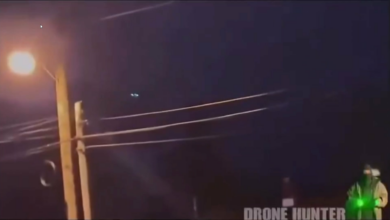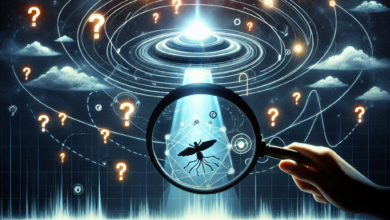UFO Disclosure Dilemma: How NYT’s Julian E. Barnes is Stifling Reporting on UAP and the Paranormal
The UFO Coverage Conundrum: Are We Missing the Bigger Picture?
When we think about UFO sightings, UAP encounters, and those inexplicable events that defy reason, you’d expect the mainstream media to be all over it, right? Well, not quite. Today, we’re taking a closer look at the curious case of Julian Barnes, a figure deeply embedded in the world of national intelligence and media.
Who is Julian Barnes?
So, who exactly is Julian Barnes? This Harvard University alum and former Wall Street Journal journalist has made quite a name for himself, particularly in the realm of national intelligence coverage. But here’s where it gets interesting—there’s a nagging suspicion that he might be more than just a reporter. With a background that seemingly paves the way for connections to U.S. intelligence interests, one has to wonder, is he being financially supported by some covert funding sources?
Barnes rarely questions the U.S. intelligence agencies, raising eyebrows among those who know the intricacies of media influence. This leads us to an even bigger question: why isn’t the media diving deeper into UFOs?
The Media and UFOs: A Tangled Web
It seems that the CIA’s shadow looms large over major media outlets like the New York Times and the Washington Post. For decades, there’s been a theory floating around that these organizations have been infiltrated, potentially leading to a reduction in coverage of topics that could create an uproar—like UFO sightings and alien abductions.
Take, for instance, Jesse Michaels’ recent chat with filmmaker James Fox. During their discussion, they touched on how Barnes appears to play a key role in keeping discussions about UAP (Unidentified Aerial Phenomena) on the fringe. Some may argue that he’s stifling essential work done by journalists like Leslie Kean, a dedicated researcher in the field who has been at the forefront of demystifying these mysterious lights in our skies.
The Unexplained Phenomena Dilemma
Barnes’ position raises a critical point about information dissemination. It seems the current narrative is being tightly controlled—prioritizing national security over public enlightenment about these paranormal events. The cycle continues, with anonymous tips from unnamed intelligence officials being reported as undisputed fact. But who’s questioning the narrative?
As UFO enthusiasts, researchers, and everyday people who’ve experienced unexplained phenomena, we owe it to ourselves to seek transparency. If the media keeps UFOs in the background, what might we be missing?
Join the Conversation
It’s time for a shift in how we talk about UFOs and UAP encounters. If you’ve had a mysterious experience or want to share your thoughts on the media’s coverage (or lack thereof), get involved! Drop your experiences below or share this article with friends who care about these topics.
Let’s keep the conversation alive and encourage others to peel back the layers on the phenomenon of UFO sightings. After all, these are not just stories; they’re part of our ongoing quest to understand the unknown.




